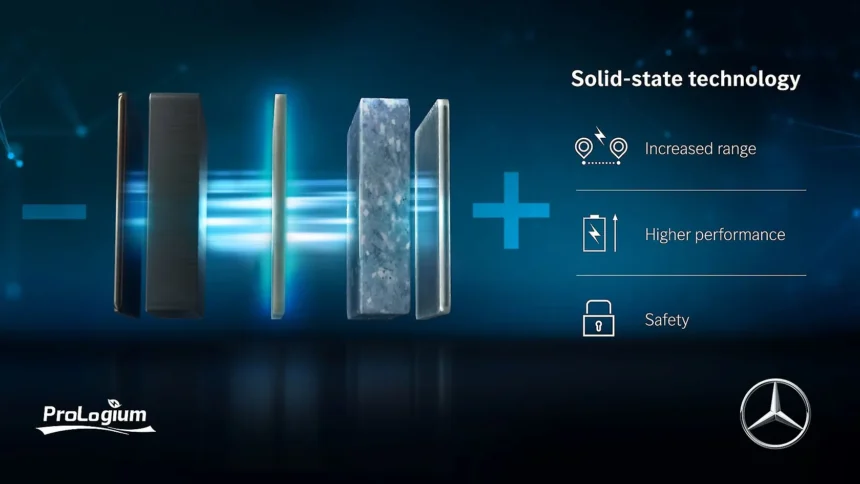Mercedes-Benz is preparing to road-test its new solid-state batteries in the next few months. Developed in collaboration with Boston-based Factorial, these batteries promise to revolutionize electric vehicles (EVs) by offering increased range and faster charging times. Factorial’s Solstice battery could extend an EV’s range by up to 80%, thanks to its higher energy density. The battery is also expected to be lighter, less expensive, safer, and more sustainable than current lithium-ion options.
What’s Happening & Why This Matters
Mercedes-Benz, along with other partners such as Stellantis, Hyundai, and Kia, is working to advance solid-state battery technology. The company invested $200 million in Factorial in 2022 and received its first batch of battery samples in June. Mercedes is also collaborating with ProLogium, a Taiwan-based battery manufacturer that opened a mass production facility earlier this year.
The Solstice battery is still in the prototyping phase, with Factorial operating a pilot manufacturing facility. Factorial’s CEO, Siyu Huang, indicated that efforts are focused on a quasi-solid-state battery, known as FEST, developed in partnership with Mercedes. As this battery advances through its development stages, Factorial plans to speed up work on the Solstice model. Mercedes aims to introduce solid-state batteries to its dealerships by 2030.

According to Oliver Fenzl, a communications manager for Mercedes-Benz’s drivetrain technologies, the company is ready to start testing the solid-state technology on the road soon. This dual approach, involving both Factorial and ProLogium, allows Mercedes to diversify its battery supply chain while maintaining a mix of battery technologies, including traditional lithium-ion options.
Mercedes acknowledges that while lithium-ion battery performance has improved significantly over the past two decades, future advancements are expected to be incremental. In contrast, solid-state batteries have the potential to transform EV performance entirely. The company, like others in the industry, is also exploring additional battery chemistries, such as silicon and sodium-ion, which may offer unique benefits and price points in the future.

TF Summary: What’s Next?
Mercedes-Benz’s commitment to solid-state batteries is stepping towards a true electric vehicles future. As the company begins road testing these new batteries, its target go-to-market date is 2030. Solid-state development could provide consumers with more efficient, cost-effective, and sustainable battery options. Meanwhile, the entire automotive industry is exploring multiple technologies to meet diverse needs and ensure a secure supply chain.
— Text-to-Speech (TTS) provided by gspeech


